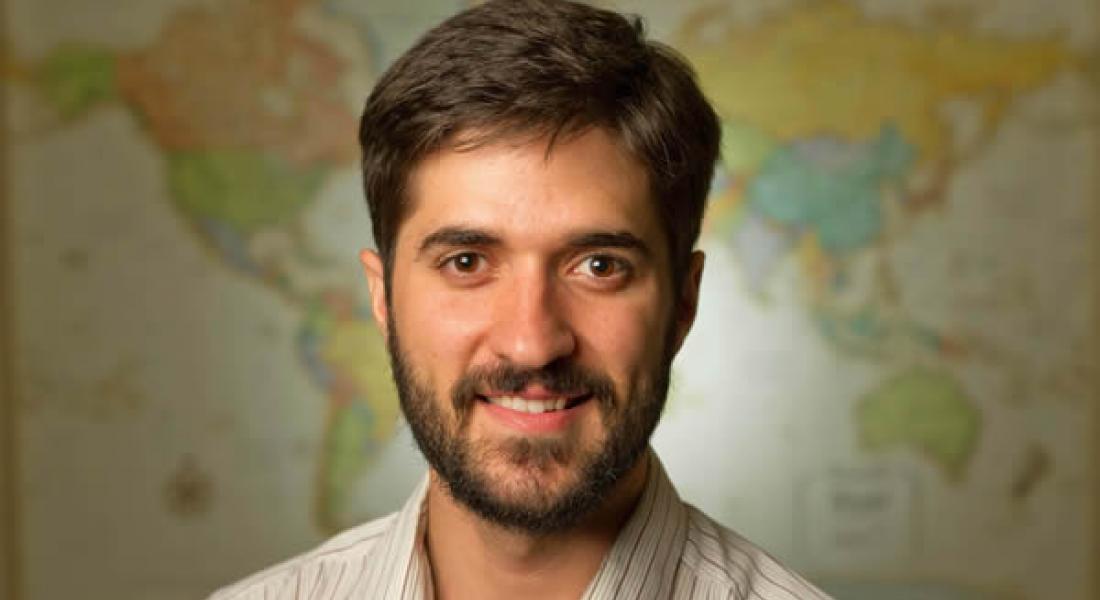
Kellogg doctoral student affiliate Kyle Lambelet (theology and peace studies) has been awarded a Louisville Institute Dissertation Fellowship to support his research on the theology and ethics of nonviolent movements in the US.
Lambelet’s dissertation is structured around four dilemmas he has found nonviolent activists face: the use of liturgy in political movements, building coalitions in the context of pluralism, the transgression and appropriation of the law to support movement aims, and the appeal to exemplary figures to motivate movement activism.
“My research blends ethnographic methods of participant observation and interviews with historical and archival work,” he said. “The Louisville Dissertation Fellowship has enabled me to stay on track with my research. I’ve done several stints of on-the-ground fieldwork, but the majority of my work now is at the Hesburgh Library, focusing on the data and writing.”
Chaired by Walter Professor of Theology Gerald McKenny, his dissertation committee includes Faculty Fellows Ann Mische and Todd Whitmore.
Before he was a graduate student, Lambelet was engaged in activism with School of the Americas (SOA) Watch, a grassroots campaign protesting the training of military officers—mainly Latin American—by the US Army. Now, the dissertation he’s writing uses SOA Watch as a case study.
The Western Hemisphere Institute for Security Cooperation, as SOA is now called, is an institute in Georgia that provides training for military personnel from US-allied Latin American countries. Led by a transnational collective of nonviolent activists, SOA Watch has pushed for the closing of the school and monitoring of its graduates, Lambelet said.
“SOA Watch has long included elements of religious liturgies and exemplars, and those things really fascinated me,” he said. “When it came to decide on a dissertation topic, I had been writing about SOA Watch activism in my term papers and other places, and I thought it’d be a great way to continue that and think about a movement I found compelling, problematic, and interesting.”
As part of the fellowship, Lambelet traveled to Louisville Theological Seminary in February with the rest of his cohort—theologians, ethicists, historians, and others scholars of American religion—to talk about their work and emerging trends in the discipline.
“The fellowship vindicates my intuition that this kind of nonviolent solidarity-activism is not only of historical interest, but it is also relevant for constructive engagement in the world today,” he said. “My hope is that, through my research, I can both advance scholarly knowledge and refine the practice of nonviolent activism.”
“I can’t think of a better place to do the type of research I’m doing than Notre Dame, particularly because the joint program I’m in—theology and peace studies—blends the normative and empirical aspects of my work as scholar,” he said.
The Kellogg Institute for International Studies, part of the University of Notre Dame’s new Keough School of Global Affairs, is an interdisciplinary community of scholars and students from across the University and around the world that promotes research, provides educational opportunities, and builds linkages related to two topics critical to our world—democracy and human development.
Originally published at al.nd.edu





